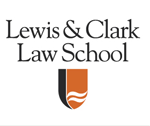Animal Law Review
First Page
9
Abstract
Beginning in the 1980s, the curious phenomenon of breed-specific legislation (BSL) began to spread across the U.S. and abroad. The phenomenon can be traced to sensationalistic media portrayals of the pit bull at that time. This kind of sensationalism was nothing new; throughout American history, various breeds have served as scapegoats, each taking a turn as the most ‘dangerous.’ While it was not new to seek to contain fears by isolating a particular ‘problem’ breed, the legislation itself was unprecedented. Today, in light of mounting evidence that factors other than breed are more determinative of aggression in domestic dogs and that BSL does not decrease incidents of dog bites, many jurisdictions are seeking to undo these laws. For example, many states have passed legislation preempting local ordinances that discriminate based on breed. This Article calls for all jurisdictions to follow suit, in recognition of the fact that there are more rational methods available for addressing the public health hazard posed by individual aggressive dogs.
Recommended Citation
Ann L. Schiavone,
Barking up the Wrong Tree: Regulating Fear, Not Risk,
Animal L. Rev.
9
(2015).
Available at:
https://lawcommons.lclark.edu/alr/vol22/iss1/3

